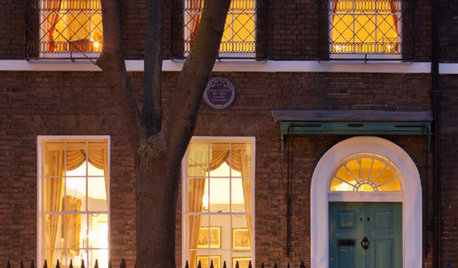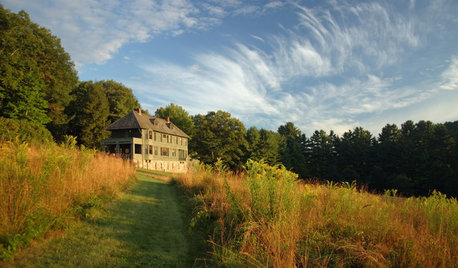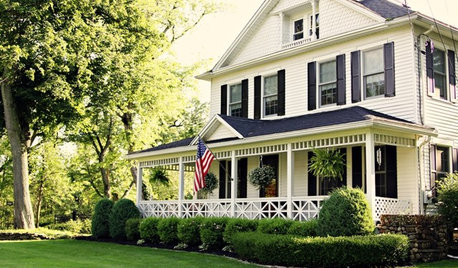What "classic" author/work do you remember?
dublinbay z6 (KS)
11 years ago
Related Stories

HOMES AROUND THE WORLDSee the Home Where Charles Dickens Wrote Some of His Classic Stories
On December 17, 1843, ‘A Christmas Carol’ was published, and we’re celebrating with a tour of the famed author’s home
Full Story
TASTEMAKERSChic and Timeless Decorating Ideas to Remember
New York design firm Carrier and Co. offers inspiration for elevating your room’s decor — whether traditional, modern or country-inspired
Full Story
ORGANIZING‘Tidying Up’ Author Marie Kondo Tells How to ‘Spark Joy’ at Home
A new book from the author of ‘The Life-Changing Magic of Tidying Up’ delves deeper into her KonMari Method of decluttering and organizing
Full Story
EVENTSSee the Vermont House Where Rudyard Kipling Wrote ‘The Jungle Book’
The author penned many works here, including his children’s classic, which Disney has remade into a movie
Full Story
DECORATING GUIDESMaterials to Steer Your Style Into Classic Coastal
Deep blues, soft neutrals and natural materials bring an air of sophistication and simple serenity to rooms
Full Story
RUSTIC STYLEHow to Outfit a Classic Farmhouse
You could research farmhouse decorating choices until the cows come home. Or you could just check out our hand-picked roundup here
Full Story
DECORATING GUIDES9 Dorm Room Classics Schooled in Grown-Up Style
Furniture, shelves and lighting from college years past make for high-grade interiors with a bright future
Full Story
DECORATING GUIDESNew Classics: Woods Wallpaper by Cole and Son
The popularity of this soothing forest-themed wallpaper shows no signs of waning
Full Story
VINTAGE STYLEAmerican Icons: Coca-Cola Classic
Vintage items bearing the soda company's iconic red and white graphics are an ongoing hit in contemporary and modern interiors
Full Story



sheriz6
woodnymph2_gw
Related Discussions
Who/what do you consider classic?
Q
Food, food, food, remember this old classic?
Q
Which GW members do you remember and what do you remember them for?
Q
Do you read lots of books by the same author?
Q
dublinbay z6 (KS)Original Author
martin_z
Kath
friedag
dublinbay z6 (KS)Original Author
rosefolly
rouan
carolyn_ky
kathleen_se
donnamira
sheriz6
phoebecaulfield
Rudebekia
veer
dublinbay z6 (KS)Original Author
woodnymph2_gw
donnamira
phoebecaulfield
friedag
dublinbay z6 (KS)Original Author
carolyn_ky
Kath
veer
woodnymph2_gw
sheriz6
rosefolly
dublinbay z6 (KS)Original Author
friedag
carolyn_ky
annpan
dublinbay z6 (KS)Original Author
friedag
veer
dublinbay z6 (KS)Original Author
friedag
junek-2009
Kath
carolyn_ky
veer
dublinbay z6 (KS)Original Author
friedag
carolyn_ky
annpan
iamokathy
dublinbay z6 (KS)Original Author
iamokathy
rosefolly
dublinbay z6 (KS)Original Author